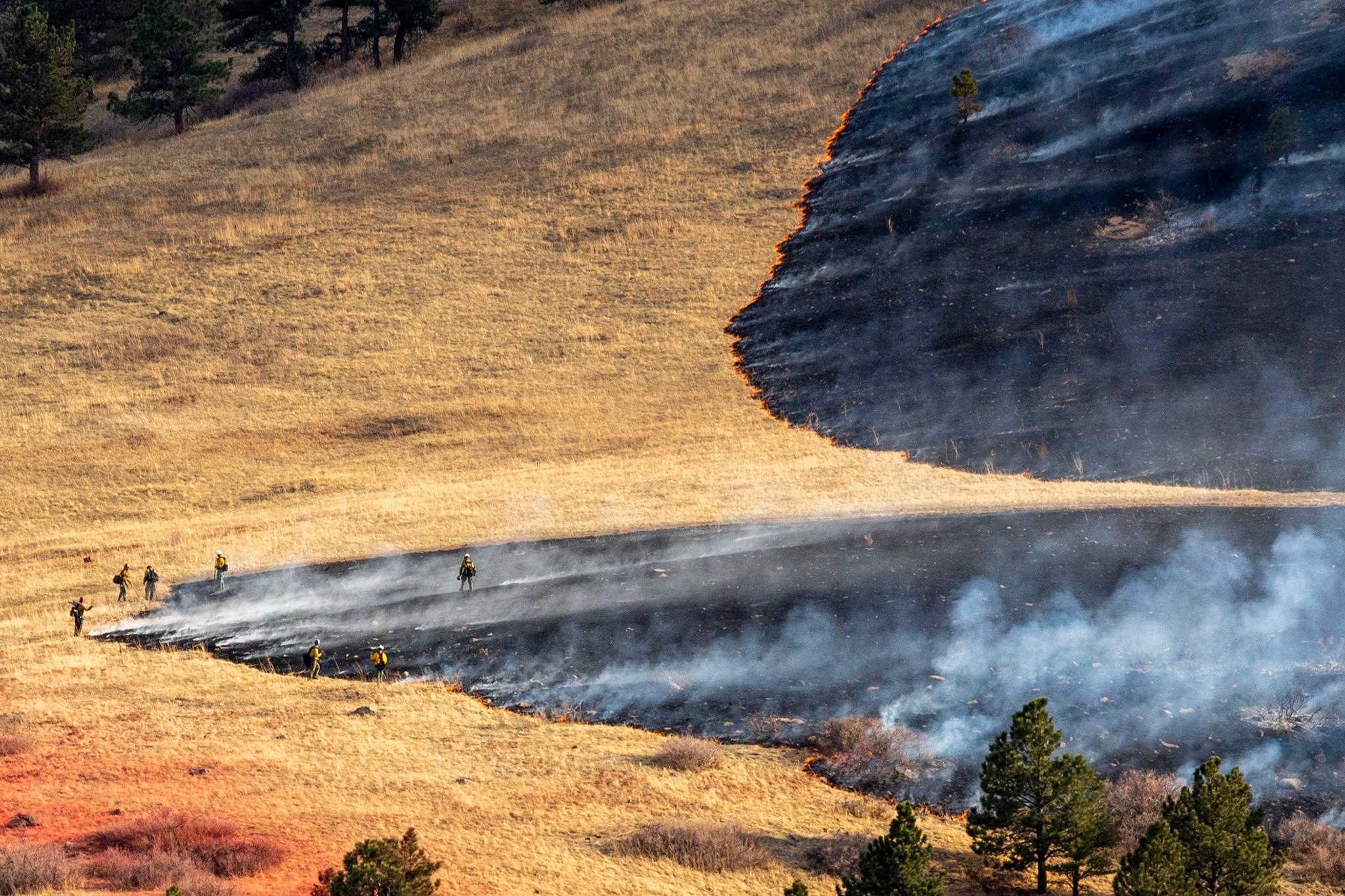
Marshall. Cameron Peak. East Troublesome. Calwood. And now NCAR. These are just some of the wildfires that have burned through Democratic Rep. Joe Neguse’s district since 2020.
“I’ve been frustrated by the inability of the Congress to take this threat as seriously as I think it needs to be taken,” Neguse said, who spoke on the House floor Wednesday urging Congress to do more.
In his office later, he recounted a conversation he had the day before. A colleague had come up to him to say that wildfire season’s really rough in Colorado.
“There is no season. It’s year-round,” Neguse responded.
“I do think that the proliferation, the pervasiveness of wildfires in Colorado…underscores the need for Congress to get serious about … taking the steps necessary to address what is clearly a crisis that is not going to go away,” Neguse added.
For his part, Neguse has offered several bills to tackle this issue over this tenure in the House. His proposals range from helping homeowners in the wake of a wildfire to increasing wildfire management funds.
He and GOP Rep. John Curtis of Utah even launched a bipartisan wildfire caucus at the start of 2021 to push the issue in the House, as well advocate for legislative solutions, though the caucus hasn’t grown as fast as Neguse had hoped.
Wildfires are a unique challenge for western states
Neguse is the first to admit, advocating for more wildfire legislation has been an uphill fight, in part because wildfires are unique to the West.
“Most of our colleagues are not dealing with wildfires. They're dealing with floods, they're dealing with other types of natural disasters [like] hurricanes,” he said.
But he said the message is “really starting to get across.” And it’s helping bills inch forward, including three he feels could really address wildfire concerns.
His Western Wildfire Support bill, which helps communities get training, equipment and money to combat wildfires, was voted out of the transportation committee on a strong bipartisan vote, 16-3.
“We’re now imploring the majority leader to bring that bill to the floor,” Neguse said.
Neguse is advocating for other wildlife-related bills, too
He’s also continuing his push for a climate conservation corps, which he views as a bill that could deal with wildfire mitigation and resilience by creating a job corps to work in public lands and tackle wildfire prevention projects.
He's also pushing for Tim’s Act, a bill that would increase federal firefighter pay to $20 an hour and provide health and retirement benefits. It’s named for Tim Hart, a smokejumper, who died last year working in a fire in New Mexico.
“We cannot allow this injustice to continue — of having federal wildland firefighters, literally risk their lives and in some cases die protecting our communities, and yet not be paid a living wage, not have access to healthcare and retirement benefits,” Neguse said.
Neguse said he’s working with GOP Rep. Liz Cheney on getting Tim’s Act passed. Last year, the president raised the federal firefighter pay to $15 an hour.
Neguse said he “hasn’t given up yet” on a legislative solution passing this year, despite it being an election year and the clock ticking on the congressional session.
For people with experience in firefighting, the delay is surprising
Former federal firefighter Kate Dillon is surprised that Congress hasn’t worked quickly on this issue.
Dillon worked for three years in northern Colorado and her husband still works in the same field. When she wasn’t fighting a fire, she was taking down hazardous trees.
She was making around $14 an hour, which she said doesn’t go far, especially with housing costs and inflation. After feeling burned out, she quit and went back to school instead.
“What they're compensated with is just, I mean, it's laughably low,” Dillon said. “It's really unfair for the amount of work and time and energy that people put in.”
More coverage of wildfires in Colorado:
- New UN climate report says the world has a brief window to avoid a deadlier climate future. Here’s what’s at stake in Colorado
- Prescribed burns could help prevent the next Marshall fire. They’re not easy to pull off in grasslands
- People who lost homes in the Marshall Fire are trying to begin rebuilding. Their insurance coverage might stand in the way
- Colorado moves one step closer to introducing more wildfire investigators to the state








